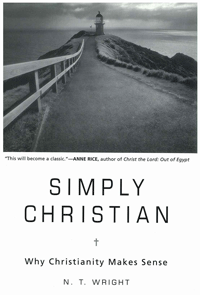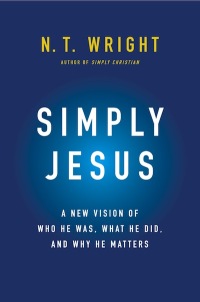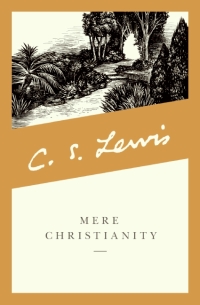Book Reviews (by Kim Gentes)
In the past, I would post only book reviews pertinent to worship, music in the local church, or general Christian leadership and discipleship. Recently, I've been studying many more general topics as well, such as history, economics and scientific thought, some of which end up as reviews here as well.
Entries in christianity (10)
After You Believe: Why Christian Character Matters - N.T. Wright (2010)
 Sunday, October 12, 2014 at 1:40AM
Sunday, October 12, 2014 at 1:40AM  After You Believe - NT WrightLike all NT Wright books, "After You Believe: Why Christian Character Matters" tackles a specific topic or area with an aim to provide scriptural and historical context as a foundation for the author's theological and philosophical positions on the topic. Wright always does his research and this book is no exception. "After You Believe" tackles the topic of character by looking at the ancient Aristotelian concept of virtue and how it was reimagined and reformed by the theology and practice of both Jesus and Paul.
After You Believe - NT WrightLike all NT Wright books, "After You Believe: Why Christian Character Matters" tackles a specific topic or area with an aim to provide scriptural and historical context as a foundation for the author's theological and philosophical positions on the topic. Wright always does his research and this book is no exception. "After You Believe" tackles the topic of character by looking at the ancient Aristotelian concept of virtue and how it was reimagined and reformed by the theology and practice of both Jesus and Paul.
The book is a treatise exploring a Christian virtue ethic in which the believer takes on the assumptions of character transformation through gradual surrender to God's kingdom concepts of worship and mission. More specifically, this is not a book about the "how-to's" of Christian practice.
What you find here is NT Wright continuing his conversation about how not only our theology, but our practice, must anticipate the full appearing of kingdom of God in it's action. That is to say, Wright's vision of a Christian virtue ethic is based on eschatology (where we are headed) and how full human flourishing occurs as we make the journey there, beginning in this world, not the next.
"After You Believe" is a subtle side-swipe of the standard "spiritual disciplines" talk that has come through in many popular Christian books. Wright has little patience for "self-help" Christian concepts, and debunks the "God-less do-gooding" as much as he deconstructs the popular notion of "cheap grace" - both of which he considers errant parodies of true Christlikeness. In fact, this book nods at Aristotle's astute observations of virtue, and yet, explains that Jesus and Paul answered the ancient Greek notion of virtue with the true answer to human flourishing - love-fueled Christlike character.
NT Wright has done with "After You Believe" what he has done with many other New Testament topics- re-addresses them in light of his creational theology that puts God's goal of rescuing humanity from it's sin stained condition and restoring the future of our created intention through Christ's work on the cross and the Holy Spirit's presence with the church through the ages. This book is vivid, powerful and readable. But it is not simple. It requires you take seriously the concepts he brings to bear in his other books (though he leave you enough overview in this book, even if you haven't read the others).
The purpose of this book is pragmatic (explaining to Christians what they are to do in this life, while waiting for the glorious eternity in the next), but it has a powerful, perhaps eternal intent- to get us walking towards the future in the area of our character, long before the future fully arrives.
It is an excellent book on, as Wright puts it "how to think about what to do". Get it. Read it. You will not be disappointed. A great book from a great thinker about a topic that is of great importance to all Christians.
Amazon Link: http://amzn.to/1sgmqsU
Review by Kim Gentes
Simply Christian - N.T. Wright (2006)
 Wednesday, May 1, 2013 at 12:31PM
Wednesday, May 1, 2013 at 12:31PM  Many of the works I have chosen to review have been deeper theological writings, some of which have been by revered biblical scholar, N.T. Wright. His work as both a historian and theologian has colored his books with a particularly powerful edge. Because of his scholarly bent, when thinking about a general book outlining Christianity and its claims to those outside of the faith (or new to it), I wouldn't have thought to consider a book by Wright. However, "Simply Christian" is just that. It is a book that presents the Christian faith in a clear and understandable format to any who might be interested.
Many of the works I have chosen to review have been deeper theological writings, some of which have been by revered biblical scholar, N.T. Wright. His work as both a historian and theologian has colored his books with a particularly powerful edge. Because of his scholarly bent, when thinking about a general book outlining Christianity and its claims to those outside of the faith (or new to it), I wouldn't have thought to consider a book by Wright. However, "Simply Christian" is just that. It is a book that presents the Christian faith in a clear and understandable format to any who might be interested.
Within its pages, Wright poses a thoughtful progression that examines the human experience to point to an unspoken awareness in ourselves, and our world, of something missing. Wright's "echoes of a voice" elements are justice, spirituality, relationship and beauty– all things which tell us that the universe (and our place in it) are meant for something different than we have come to. But more than a sense of lack, they point to something that exists that we can't name. And in his development of what that is, he names it. The Jewish God, YHWH.
Wright's use of these arguments and specific components (especially justice and beauty) echo clearly the arguments of CS Lewis' writings in both Mere Christianity (which uses moral code/justice) and his sermon/writing The Weight of Glory (which uses beauty and love). I mention Lewis and Wright in the same context, because their parallel books seem to be aimed at the same thing, and both writers are up to the task. Simply Christian, however, is a much more historical and technical exploration of how the world and context of Jewish monotheism brought about the person of Jesus, and how Jesus turned out to be not only the answer for Jewish religious hopes, but also the ultimate "Lord" of the entire human race.
Wright's basic premise is this– God created a good world, but man rebelled from him. God has set out on a plan to rescue his rebelled creation and that plan has come to embodiment in God himself coming to earth in the person of Jesus. Jesus announced this rescue plan of re-creation (putting the creation to rights) and now invites all people into that rescue– not only for their own sakes, but to join in as part of the solution. That solution is called the kingdom of God. The kingdom of God is the realm/dimension of God's love and reign invading and reclaiming man and the earth for God's purposes. Through the power of the Holy Spirit, God continues to work through all those who join in (Christians) and through the church– the gathered Body of Christ.
As best as I can, that is how I would summarize Wright's preposition in Simply Christian. The problem with doing such a summary, however, is that I risk infraction of any number of logical, practical or theological arguments because, simply put, just as life is not simple, Christianity isn't either. And boiling Christian faith down to a few short lines of innocuous (and fairly un-actionable) statement is precisely what Wright avoids by taking on all the salient points in life-breathing detail. I want to make that point because this book is not "Simple Christianity", as if everything intelligent about it could be reduced to a set of polarized truisms. In fact, the author puts to use his own varied, and sometimes extended, metaphors throughout the book to help us grasp the nuance of key concepts and moving narrative of the story of God, creation, man, Jesus, and eventually, the church.
Simply Christian is a very well written book, but it also has significant historical and rhetorical ammunition in its muzzle. The author banters through classical references (Plato, Epicurus, Lucretius), extensive Jewish back-story (all the relevant biblical narrative, as well as apocryphal and historic characters such as Judas Maccabaeus, Simeon ben Kosiba), 1st century Roman world (Caesar, the rise of Rome as a world empire), and plenty of 18th to 21st century (Nietzsche, Hitler, Oscar Wilde, 9/11 attacks) references as well. He does all of this as a way of providing proper context and flow to the presentation being made. It is all excellent, but it is not going to feel "simple" to say a 7th grade student. Wright continues to be in good company, however, as Lewis' regular references to literary or classical world touch-points would likewise be foreign to many readers.
That said, Simply Christian is an excellent book with mountains of good points and very few detractions. The delightful surprises I found are the excellent highlighting he does in correcting the dozens of common misconceptions that people (Christians and non-Christians alike) have of what being Christian really means. His theological stature here helps immensely, as he grasps at "truisms" and debunks them cleanly. Playing with language and logic, he clarifies many incorrect and unhelpful misunderstandings of who Jesus is, what he said and (not the least important) what happens after we die.
Because the truth and explanation of Christianity is not ultimately "simple" (in terms of boiling it down to one-liners that can be defended), this book is not either. However, in the scope sense, it is a well-written exposition and recommendation on what it means to be Simply Christian.
Amazon Link: http://amzn.to/12WHEkd
Review by Kim Gentes
 christianity,
christianity,  history,
history,  jesus,
jesus,  kingdom of god,
kingdom of god,  n.t. wright,
n.t. wright,  nt wright,
nt wright,  questions about christianity,
questions about christianity,  simply christian,
simply christian,  theology,
theology,  wright in
wright in  Apologetics,
Apologetics,  Art,
Art,  Bible,
Bible,  Book Review,
Book Review,  Church,
Church,  Community,
Community,  Counsel,
Counsel,  Creation,
Creation,  Devotion,
Devotion,  Easter,
Easter,  History,
History,  Jesus,
Jesus,  Justice,
Justice,  Liturgy,
Liturgy,  Ministry,
Ministry,  Mission,
Mission,  Old Testament,
Old Testament,  Prayer,
Prayer,  Resource,
Resource,  Resurrection,
Resurrection,  Theology,
Theology,  Worship
Worship Confessions - St. Augustine of Hippo (398)
 Thursday, April 11, 2013 at 3:20PM
Thursday, April 11, 2013 at 3:20PM  Over 1600 years ago a young man made a journey- from a life dedicated to fulfillment in sexual passions and rhetorical conjecture to spiritual discovery and embrace of Christ and the church. That young man wrote down his story in what many consider to be the first autobiography in Western literature- "The Confessions". "Confessions" was written by Saint Augustine, who would later become the famed bishop of Hippo (Hippo Regius). His literary output, along with his philosophical and theological stature, made him one of the famed 35 "Doctors of the Church" throughout history.
Over 1600 years ago a young man made a journey- from a life dedicated to fulfillment in sexual passions and rhetorical conjecture to spiritual discovery and embrace of Christ and the church. That young man wrote down his story in what many consider to be the first autobiography in Western literature- "The Confessions". "Confessions" was written by Saint Augustine, who would later become the famed bishop of Hippo (Hippo Regius). His literary output, along with his philosophical and theological stature, made him one of the famed 35 "Doctors of the Church" throughout history.
The essence of the book is framed well by its title- this is the testimony of a man who pours out his confession and remorse of sins, all the while showing almost no regard for his own piety as viewed through posterity. But Augustine is anything but thoughtless. He is seen as one of the great theological thinkers in all church history. But "Confessions" shows us the strength and expanse of his character- his ability to be fully intellectual in logic and rhetorical arts, while being completely aware and involved through his passions and senses. He argues convincingly, at times, through understandings of sin, grace and even the essence of time, and yet feels, cries, repents, anguishes and joys all the experiences of his life.
"Confessions" first several books (chapters) are a chronological account of Augustine's life, beginning literally at his birth and eventually leading up to his conversion and eventual baptism into the Catholic church. He talks extensively about his vices related to sexual relationships, his search for "truth" (as found through various academic and religious pursuits) and his desire for integrity in ethics (viewed through scepticism of others dishonesty and his realization of his own duplicity).
Augustine was searching for the reality of eternity, joined the "trendy" religion of the day (Manichaeism) and pursued a worldly career with much success and promise (professor of rhetoric). Hints of his eventual conversion are seen early in his life, his mother being an ardent Christian. Augustine has deeply Platonic seeds planted by his "enlightenment" of true happiness that occurs when he reads Cicero's Hortensius, which disavows physical pleasures for the search of truth. Through a brilliant mind he deduced the fallacies of much of the materialist philosophies of his day and (at least in his intellectual pursuit) seems to be pounding on the church door to find God by the time he is finally captured into Christ by the words and influence of Ambrose, the brilliant orator and bishop in Milan.
Throughout the volumes, Augustine is deeply philosophical about a range of things related to internal sins and thoughts and temptations, but once he is converted and is baptized, his life turns completely from his focus on a secular career and sin indulgences. This is not because he has no more desires, but because he struggles with them, confronts them and ruthlessly surrenders his life to teachings of scripture and direction of the church. Once "in", Augustine becomes clear champion of the faith combating his former vices (especially Manichaeism and astrology) by writing and arguing against them. "Confessions" itself is part of that legacy of Augustine's apologetics. The book itself has a final section of 4 chapters that are starkly different than the first 9. Moving from an autobiographical style, Augustine moves into philosophical and intellectual explorations of the topics of time, eternity, matter, form, creation and even the Trinity. In the last two chapters he moves into a rhetorical interpretation of Genesis 1/2, explaining his thoughts on creation and trying to confer the possibilities of how portions might be scientific (though he never uses that term) and/or allegorical.
"Confessions" is a deeply human book, expressing for the ages the plight of the human soul- its vices, joys and ultimately its discovery of true purpose in the person of Christ. Augustine has a highly developed sense of emotions in this book, but it is coupled with a brilliant mind whose introspections range from core Christianity to profound theology. Though there are some topics and ideas that are obviously bound in the 4th century, along with its author, so much of this book is truly "modern", even "post-modern", in that Augustine looks both to philosophical thought and deductive experience to parse through the theories and realities he is facing in his quest for God.
The book is relatively short (270-300 pages depending on the version you have) and should be at the top of the reading list for any thoughtful person searching for truth, for reality and ultimately, for God. To struggle through "Confessions" is to struggle alongside Augustine, and indeed with the human narrative, from our base nature into the reality of spiritual discipleship and life. If you have this book for a school/college assignment, don't be afraid, get reading. It will not be disappointing. A true classic.
The great thing is, this book is available in every format, from paperback (I have the Penguin Classics edition), to digital book (I recommend the Oxford version for Kindle), and even on digital audio book.
Amazon Link: http://amzn.to/12PaLZT
Review by Kim Gentes
 augustine,
augustine,  autobiography,
autobiography,  christianity,
christianity,  church,
church,  confessions,
confessions,  conversion,
conversion,  hippo,
hippo,  history,
history,  repentance,
repentance,  saint augustine,
saint augustine,  sexual sin,
sexual sin,  temptation in
temptation in  Apologetics,
Apologetics,  Church,
Church,  Community,
Community,  Creation,
Creation,  History,
History,  Literature,
Literature,  Loss,
Loss,  Reconciliation,
Reconciliation,  Theology,
Theology,  Writing
Writing Simply Jesus - N.T. Wright (2011)
 Monday, April 8, 2013 at 8:40PM
Monday, April 8, 2013 at 8:40PM  The central character of all Christendom is, of course, the person of Jesus. Yet, across even the Christian community there is much conjecture about some of the main tenants of the faith. An understanding of who Jesus is, why he came and what he accomplished are essential. Historian and theologian N.T. Wright approaches this subject as both a scholar and pastoral leader by combining the major points of his thesis from "Jesus & the Victory of God" (a complex scholarly graduate-level book) and the summarizing of "The Challenge of Jesus" (a much smaller book for local churches). Wright attacks the questions that people have about Jesus as a real, historical figure and the claims which Christians often take as "normal" for the faithful. But rather than deep technical renderings of logic and argument (such as his repudiations of others such as Dominic Crossnan in "Jesus & the Victory of God"), Wright focuses simply on explaining most of his reasoning from the scriptures themselves and drawing the backdrop from his work in history.
The central character of all Christendom is, of course, the person of Jesus. Yet, across even the Christian community there is much conjecture about some of the main tenants of the faith. An understanding of who Jesus is, why he came and what he accomplished are essential. Historian and theologian N.T. Wright approaches this subject as both a scholar and pastoral leader by combining the major points of his thesis from "Jesus & the Victory of God" (a complex scholarly graduate-level book) and the summarizing of "The Challenge of Jesus" (a much smaller book for local churches). Wright attacks the questions that people have about Jesus as a real, historical figure and the claims which Christians often take as "normal" for the faithful. But rather than deep technical renderings of logic and argument (such as his repudiations of others such as Dominic Crossnan in "Jesus & the Victory of God"), Wright focuses simply on explaining most of his reasoning from the scriptures themselves and drawing the backdrop from his work in history.
Wright does a brilliant job of explaining what he considers is the "real Jesus", one based on the historical context of the social, political and religious forces at work in the time of Jesus on earth. He does this primarily by explaining the three main forces driving the context for the narrative of the Gospels. The first force is the Roman empire and its dominating political and military control that crushes down on the middle east and the people of Israel. The second force is the ethos and history of the Jews, especially as it has been galvanized by the Maccabean dynasty, whose rebellious origins are the archetype for a series of nationalistic uprisings meant to free the Jews from a stream of dominating overlords (including the Greeks/Persians, Egyptians, Syrians, Parthians and Romans). The last great force is the self-critical voice of the prophetic tradition of the Jewish prophets. Wright explains each of these "forces" as a type of storm system which come together in the time and story of Jesus appearance to contribute to a kind of "perfect storm". Jesus positions his message- the kingdom of God- as the singular clear response to this perfect storm.
It is in the midst of this meteorological metaphor that Wright explains Jesus vocation with this brilliant language:
And with that, the sea is lashed into a frenzy; the wind makes the waves dance like wild things; and Jesus himself strides out into the middle of it all, into the very eye of the storm, announcing that the time is fulfilled, that God’s kingdom is now at hand. He commands his hearers to give up their other dreams and to trust his instead. This, at its simplest, is what Jesus was all about.1
What I love about this book is that the author is very clearly speaking to "everyman" here, and yet he still takes the opportunity to teach valuable history and theology. This book is poignantly underpinned by Wright's foundational understanding of Jesus as the herald announcing, enacting and resetting our definition of God as the new king progressively taking over earth. Jesus reconstitutes the sacred symbols of temple and time around himself, which is the ultimate repudiation of Jewish religious systems and leaders- which is what leads to his death. Wright also makes it clear that Jesus was calling for a complete revolution and was himself a revolutionary leader in every aspect of the word- except military. Jesus announcement of a "new kingdom" could not, and would not, be seen as non-political, and the degree to which it was reinforced the Roman engagement (along with the Jewish leader's angst) in Christ's eventual crucifixion. The author doesn't say that it is only political, but that Jesus was calling for a new king in charge- God himself- in every aspect of cultural, familial and political sphere.
The final, short section of the book deals with the results of Jesus claims as they are played out in the lives of his disciples and the early church.
I very much enjoyed this book by N.T. Wright. I feel it has more accessibility than many of his books, and obviously that is the intent here. He succeeds. It is also a very convincing coalescence of several of his themes presented in other books (the aforementioned, as well as "How God Became King"). He does this through his well paced metaphor (perfect storm) without descending into the depths of critical historical argumentation.
Amazon Link: http://amzn.to/16KZMgH
I highly recommend this book.
Review by Kim Gentes
1. Wright, N. T. (2011-10-25). Simply Jesus: A New Vision of Who He Was, What He Did, and Why He Matters (p. 56). HarperCollins. Kindle Edition.
 Kim Gentes |
Kim Gentes |  2 Comments |
2 Comments | Mere Christianity - C.S. Lewis (1943)
 Friday, February 22, 2013 at 2:25PM
Friday, February 22, 2013 at 2:25PM  There are few Christian writers that have had as deep and ongoing impact in the last century as C.S. Lewis. One of his most celebrated books has been "Mere Christianity". Originally written in 1944 from the texts of various radio broadcasts, Lewis compiled and revised this collection of thoughts into his seminal work that preserves both his legacy as a great thinker and his profound skill as a writer.
There are few Christian writers that have had as deep and ongoing impact in the last century as C.S. Lewis. One of his most celebrated books has been "Mere Christianity". Originally written in 1944 from the texts of various radio broadcasts, Lewis compiled and revised this collection of thoughts into his seminal work that preserves both his legacy as a great thinker and his profound skill as a writer.
While I had originally read this book in the mid-eighties, I knew it was time to revisit it. So, the last couple of weeks I re-read this classic Christian book a couple of times. In fact, reading it once actually was somewhat painful. I kept scouring the book and furrowing my brow as Lewis would make his knife sharp points at the end of each chapter. By the time I had completed one pass through the book, I knew immediately I must run through it again. The insights, and even more, the narrative flow are sparkling examples of great writing, from a master of language.
The more I read Lewis, the more it occurs to me that he is first and foremost, a writer. A brilliant writer, to be sure, but that primarily. In fact, Lewis makes this point in this book and tries to derail people who try to come at this book as theological treatise. This didn't strike me at first as being important, but the more I talk to others about this book, the more I realize it is true. I often hear others talk about "Mere Christianity" as though it were a theological defense. It is not. That isn't to say it is bad theology; rather that it isn't really written as a theological book (one in which Biblical texts are used as the centerpoint of building a case for a Christian perspective).
In one sense it is a Christian apologetic, but it doesn't come from the perspective of arguing Christian points against alternative religions or even atheistic ones. Instead, Lewis approaches the concepts much more broadly, dealing with the (universe, humanity and reality) and eventually narrows his scope to point at which the "big questions" of life are asked. Into that stream of thought, the author presents his thesis that the Christian God is not only the Creator but the ultimate Father of our eternal souls. But Lewis goes there in very deliberate, progressive steps, making sure to explore the thought process and objections of people who might be learning of the Christian faith.
Along that path, from investigation to discovery to comprehension to obedience (and all along the way, transformation), Lewis plants some of the most succinct and powerful phrases about the nature of man, the Creator and the universe we live in. For example:
In reality, moral rules are directions for running the human machine. Every moral rule is there to prevent a breakdown, or a strain, or a friction, in the running of that machine.1
Do not waste time bothering whether you ‘love’ your neighbour; act as if you did. As soon as we do this we find one of the great secrets. When you are behaving as if you loved someone, you will presently come to love him.2
There are literally dozens of quotable passages in this book- and pastors and authors have been quoting them for decades. In some ways, this book contains an expanded version of some of the core facts that Lewis writes in his famous sermon "The Weight of Glory"- but here he expands and draws a usable entrance way to non-believers to understand the Christian claims and follow and intelligent discourse about it. To be sure "Mere Christianity" is more meat than the sermon as well, and Lewis uses that storyboard to gradually move a reader from an unintelligent and lost world into a comprehension of the plan and love of God through His Son, Jesus Christ.
Lewis travels the distance from talking about a grand Cosmic Mind who is not only the author of the moral code, and behind the extance of all things, but who becomes the personal 3-in-One God who stands beside us (in Jesus), acts from within us (in the Holy Spirit), and opens grand arms to recieve us (in Father God) all as part of his program of love to draw man out of his death-ridden self into the life of being "sons of God".
The author does a spectacular job of answering the questions we all wonder about, but don't or can't find our way through the philosophical jungle of competing or amoral reasoning to find the truths we seek. With Lewis as our guide on this philosophical journey, we are in good hands, indeed. His mind, his writing and his raw humanity ask the tough questions and graciously walks us through both false and proper narratives to funding the likewise conclusions. It would be silly to say this book is a classic- everyone already acknowledges that. And yet it is that. It belongs alongside the best writings in Christian history.
Amazon Book Link: http://amzn.to/X0aUE3
Review by Kim Gentes
- Lewis, C. S. (2009-05-28). Mere Christianity (C.S. Lewis Signature Classics) (p. 69). Harper San Francisco. Kindle Edition.
- Ibid., (p. 131)
 Kim Gentes |
Kim Gentes |  1 Comment |
1 Comment |